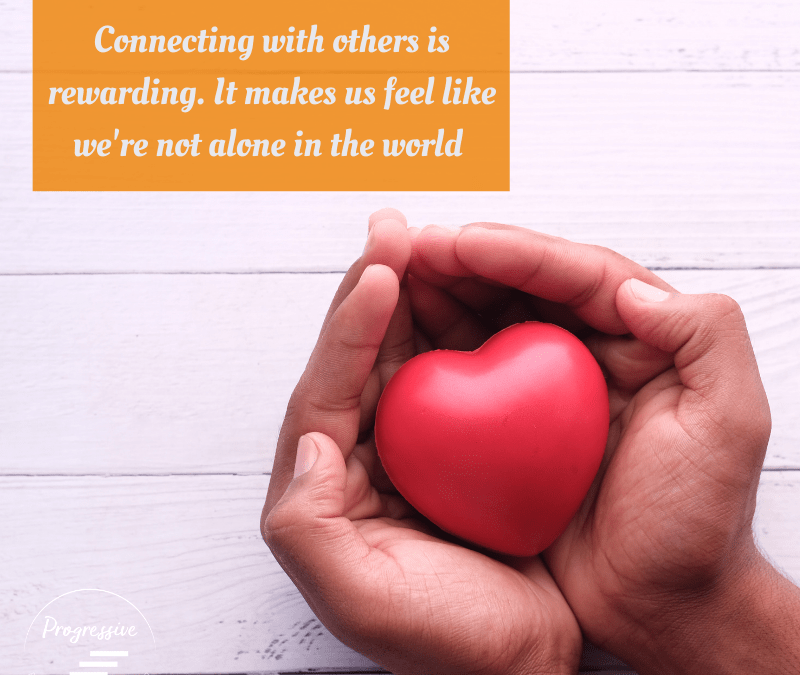Pain, injury or disability are a normal part of life. It’s not a sign of weakness to admit that you need a helping hand; everyone does at some time in their lives. We are not meant to be stoic and suffer in pain alone and in silence. There are always people around us who are willing to lend a hand and lessen the burden.
If you’re experiencing debilitating pain, there’s no shame in asking your friends to look after the kids for a couple of hours, or your family to mow the lawns, or a friend to help vacuum the house. Sometimes it’s not easy to ask for help but if you’re struggling, it can make all the difference.
People want to help
I believe that when our friends and/or family are finally given a practical way to help, they are more responsive. People like to help more than we realise.
“When you next find yourself in need of help, remember that people are willing to give it much more often than not. Few will think less of you for needing assistance. And there is no better way to make someone feel good about himself or herself than to ask for it. It brings out the best—and the best feelings—in all of us.” Heidi Grant Social Psychologist.
You might be surprised at your friends and family’s reaction when you do reach out. They might be relieved as often they’re worried about offending you by asking if you need help.
Yes, it takes bravery to ask for a favour, but there is an art to asking in the correct way.
Communicating with your partner
Partners can be the hardest to communicate with.
I think rather than groaning about the amount of pain you are in, hoping that your partner can read your mind and will magically empty the dishwasher for you, it’s more effective to be clear on how they can help and why.
Some phrases to try
Here are some approaches to try when speaking to your partner:
“My Physiotherapist has suggested rather than cleaning the whole house in one go, I should ‘pace’ myself and do it over the period of three days. As we only have the weekend before we both head back to work, do you think you could manage cleaning the shower and bathroom, as I find that hurts my back the most?”
Open and honest communication is key.
Rather than “have you got a minute to help?” an open-ended question can be more effective, for example, “if you have time to help me, what do you think you could manage?”\
It doesn’t hurt to even add a compliment…. “You make the best roast dinners dear, any chance you could please make a chicken roast this weekend, so we have plenty of leftovers for during the week. This would be helpful for when I am tired and don’t have the energy to cook dinner”.
As the person requesting help, it’s always worth showing your gratitude with a simple “thanks so much, it was so kind of you to help out”.
Speaking from experience
So now it looks like I’m the master manipulator! But seriously how we ask our loved ones for assistance is incredibly important.
I am giving this advice as I can empathise with anyone in persistent pain (that is, sleep-deprived, overwhelmed, fatigued and has brain fog). You can’t think clearly, let alone articulate what you need clearly, so it’s important to know how to reach out to get the help you need.
Further reading
If you want to seek further resources, there is a great book “Manage your Pain” (3rd edition) with practical and positive ways of adapting to chronic pain. This book is in our PPG library (not currently able to be on loan due to COVID-19). Here is the link if you are interested or this article is a good read.
These courses can also help improve your relationship with a partner or friend.
Asking for help is a sign of strength
When we open up and show our vulnerability, it can actually be a powerful thing. There may be times where you just need a shoulder to cry on. Pain is painful. If your family or friends don’t understand what you’re going through, or can’t empathise with your situation, then you might find joining an online support group beneficial.
There comes a time when you can’t do it alone. Whether it’s emotional, physical, or practical support, we need, as a society, to get better at asking for help! After all, asking for help, is a sign of strength not weakness.
Author Lisa Conlon
Principle Physiotherapist at Progressive Rehab Group
Treating persistent pain at PPG
We take a different approach to treating persistent, or chronic pain, here at Progressive Physiotherapy Group. We spend more time listening, and more time finding the right treatment to lessen your pain. If you’d like more advice or an appointment to discuss your persistent pain, give Di a call on 0497 111 127.

